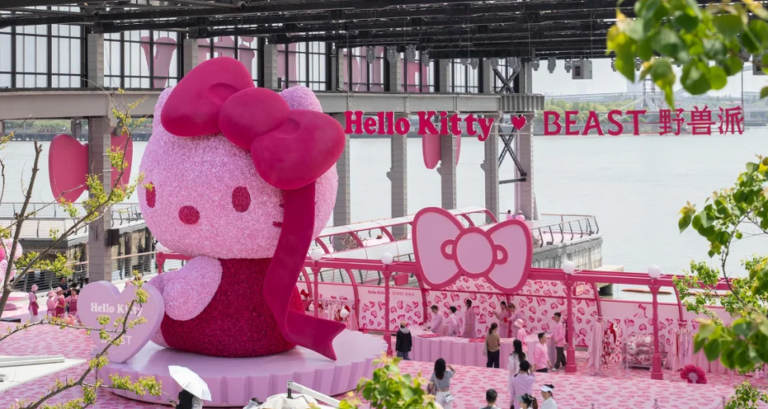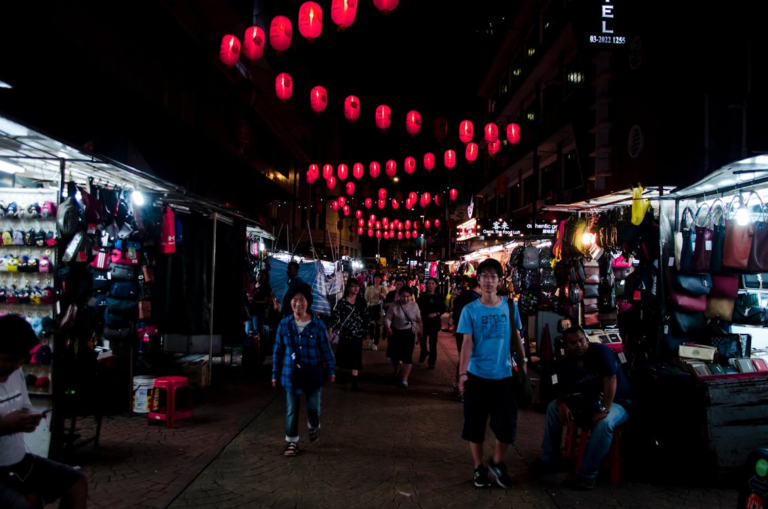Despite consumer confidence remaining low in China, it is not necessarily hurting businesses across all retail categories. In fact, some categories are performing well, such as collectible toys, outdoor sports apparel and equipment, health supplements, and pet supplies. Moreover, consumption remains important during special occasions, such as the Lunar New Year and Valentine’s Day. As consumers become more individualistic and celebrations diversify, value remains crucial. They focus their spending during these celebrations for gift-giving, domestic travel, healthier food and beverages, and other meaningful purchases throughout the 2025 China marketing calendar.
Download our guide to Chinese gifting habits
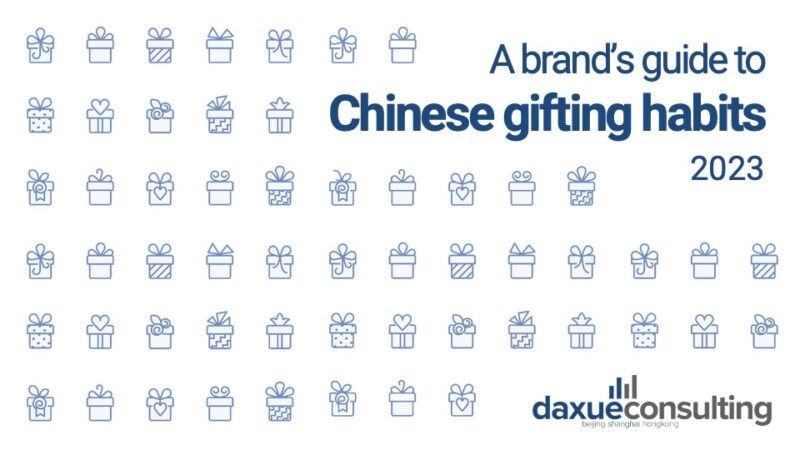

Chinese New Year (新年/过年/春节): The biggest festival in China
Chinese New Year, also known as Lunar New Year or Spring Festival, marks the start of the lunisolar calendar year. In China, it is the most important festival in China, even more important than the Mid-Autumn Festival and Double 11. Each year symbolizes a zodiac animal, with 2025 being the Year of the Snake, following the dragon in 2024. During the public holiday, which lasts up to eight days, Chinese people return to their hometowns and spend time with their family, buy festive goods and gifts, and some travel for leisure.
Moreover, in December 2024, China’s Spring Festival was recognized as an intangible cultural heritage by UNESCO, stimulating interest in traditional experiences. According to Xinhua News Agency, from January 1st to January 19th, 2025, searches for “intangible cultural experiences” (非遗体验) increased by 168%, and cultural tourism bookings in heritage-rich provinces nearly doubled.
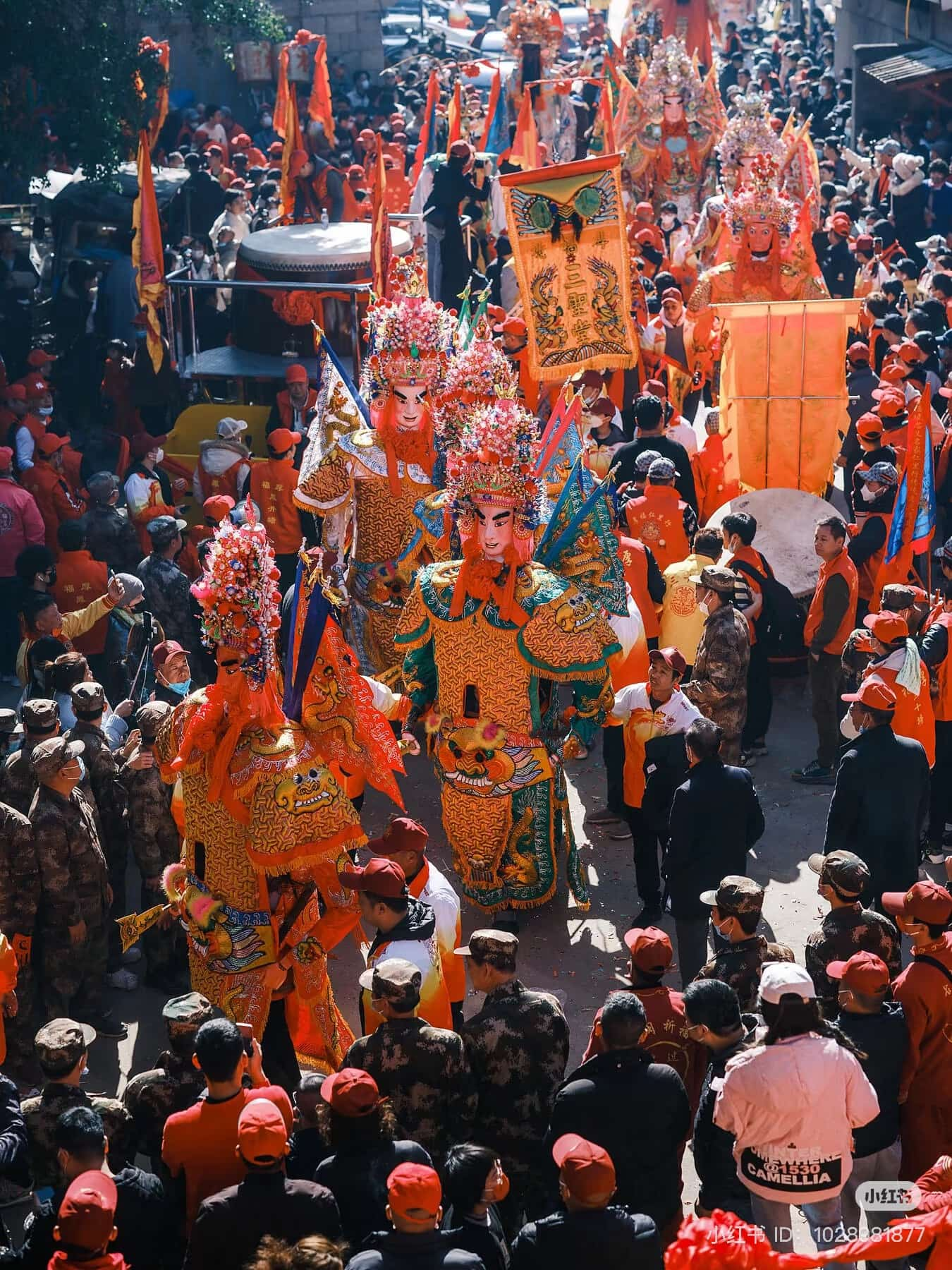
Gift-giving, another key aspect of the holiday, is also becoming more accessible. Given that WeChat has become the common form of payment in China as well as a messaging platform, people use WeChat for everyday interactions and holiday greetings. In fact, on New Year’s Eve in 2024, WeChat users received 5.1 billion red envelopes. Moreover, in January 2025, WeChat introduced a new “Gifts” feature, allowing users to send gifts without leaving the app. In the past, people had to use vertical platforms like Liwushuo (礼物说) to send gifts. However, gift givers can now buy products at WeChat Mini Shops and tap “Send to a Friend”. They don’t even need to know the recipient’s address or preferred gift style choice because gift recipients can enter their address and select their preferred product style.
Lantern Festival (元宵节) concludes the Chinese New Year holiday
The Lantern Festival marks the conclusion of Chinese New Year festivities. Traditionally, this festival is associated with family reunions, enjoying tangyuan/yuanxiao (汤圆/元宵, glutinous rice balls), and admiring colorful lantern displays while solving riddles. Over time, the Lantern Festival has incorporated modern entertainment. Chinese people of all ages visit large-scale light shows, themed events in shopping malls, and cultural performances.
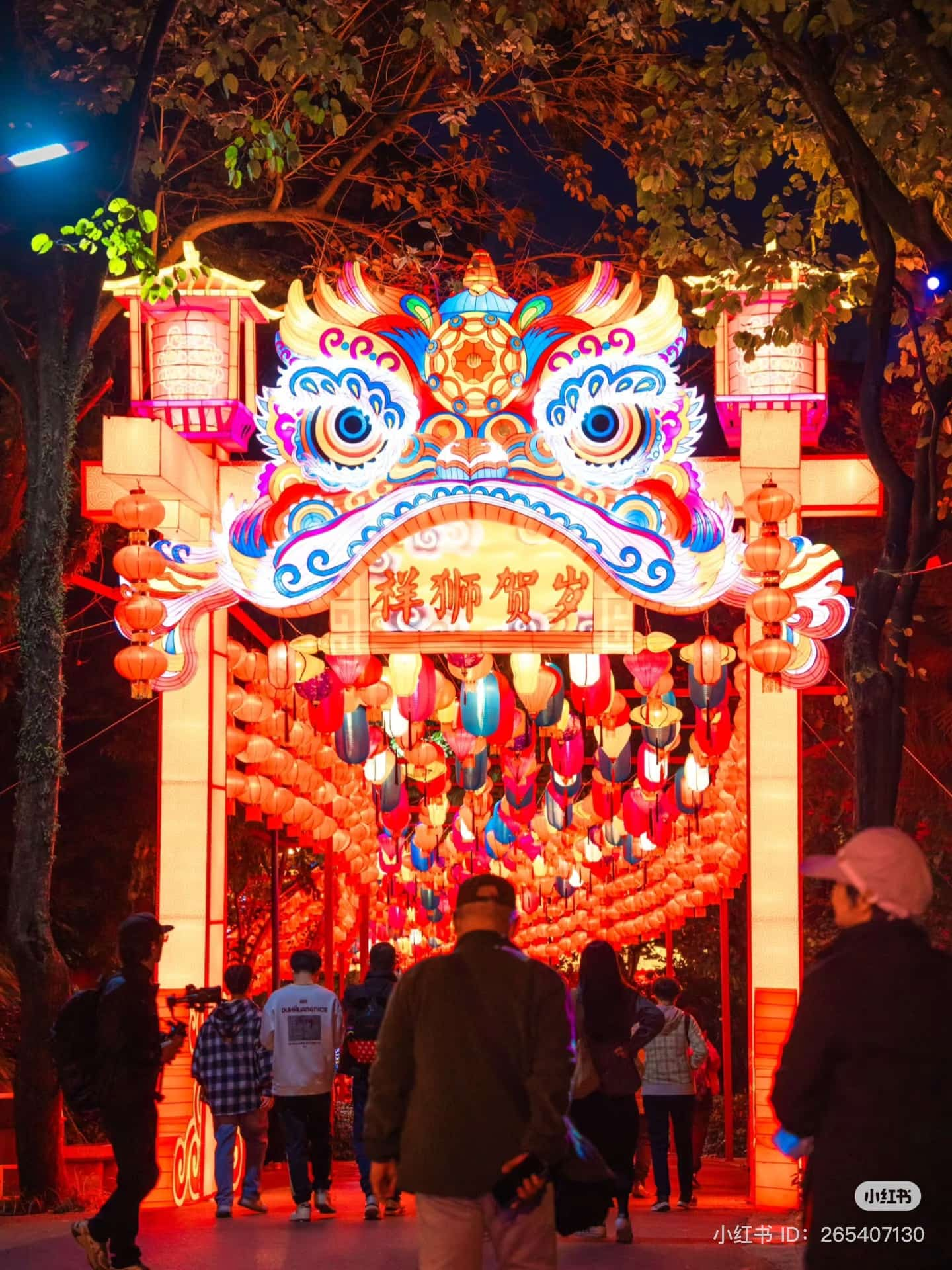
Western Valentine’s Day (西方情人节): Celebrated by Gen Z and Millennials
Unlike the West, China has multiple Valentine’s Days, including the Western Valentine’s Day on February 14th, Double Third Festival (上巳节), Qixi Festival (七夕节), White Valentine’s Day, and Internet Valentine’s day (520). Although Valentine’s Day in February is originally a Western holiday, it has been widely embraced in China, especially among Gen Z and Millennials.
However, in recent years, Chinese consumers have shown a growing preference for Chinese cultural festivals over Western ones. Baidu search index data reveals that Qixi has repeatedly experienced significant spikes in search volume, surpassing Western Valentine’s Day. Additionally, according to SocialBeta, Qixi ranked 7th in the top 10 holiday marketing campaigns of 2024.
International Women’s Day (妇女节/三八妇女节): Half-day leave and gifts for female employees
Although International Women’s Day is not a public holiday, many companies offer half-day leave and small gifts, such as flowers and chocolates, to their female employees.
Moreover, recognizing women’s strong purchasing power, many retailers have sought to rebrand this day as “Goddess Day” (女神节) or “Queen’s Day” (女王节) to stimulate female consumption. They are also engaging in more meaningful engagement with women, focusing on real social issues, such as gender equality and well-being. For example, Purcotton, a personal care brand, launched a campaign addressing “period poverty” and placed “menstrual aid boxes” in locations such as schools, malls, and airports, offering free sanitary pads.
Qingming Festival (清明节): Honoring ancestors and enjoying outdoor activities
The Qingming Festival, one of China’s most important traditional festivals, is a three-day public holiday. Rooted in honoring ancestors and celebrating the arrival of spring, people pay respects to their deceased family members and enjoy outdoor excursions.
Chinese people enjoy outdoor activities like spring outings and flower viewings. According to Fliggy, a leading online travel platform in China, interest in flower viewing during the 2024 Qingming holiday grew nearly three times compared to the previous year, with cities such as Hangzhou, Suzhou, Wuxi, Luoyang, and Wuhan ranking among the top destinations. Moreover, hiking and tea picking saw a surge of over two times year-on-year and travel bookings for mountain climbing experiences skyrocketed by more than five times year-on-year.
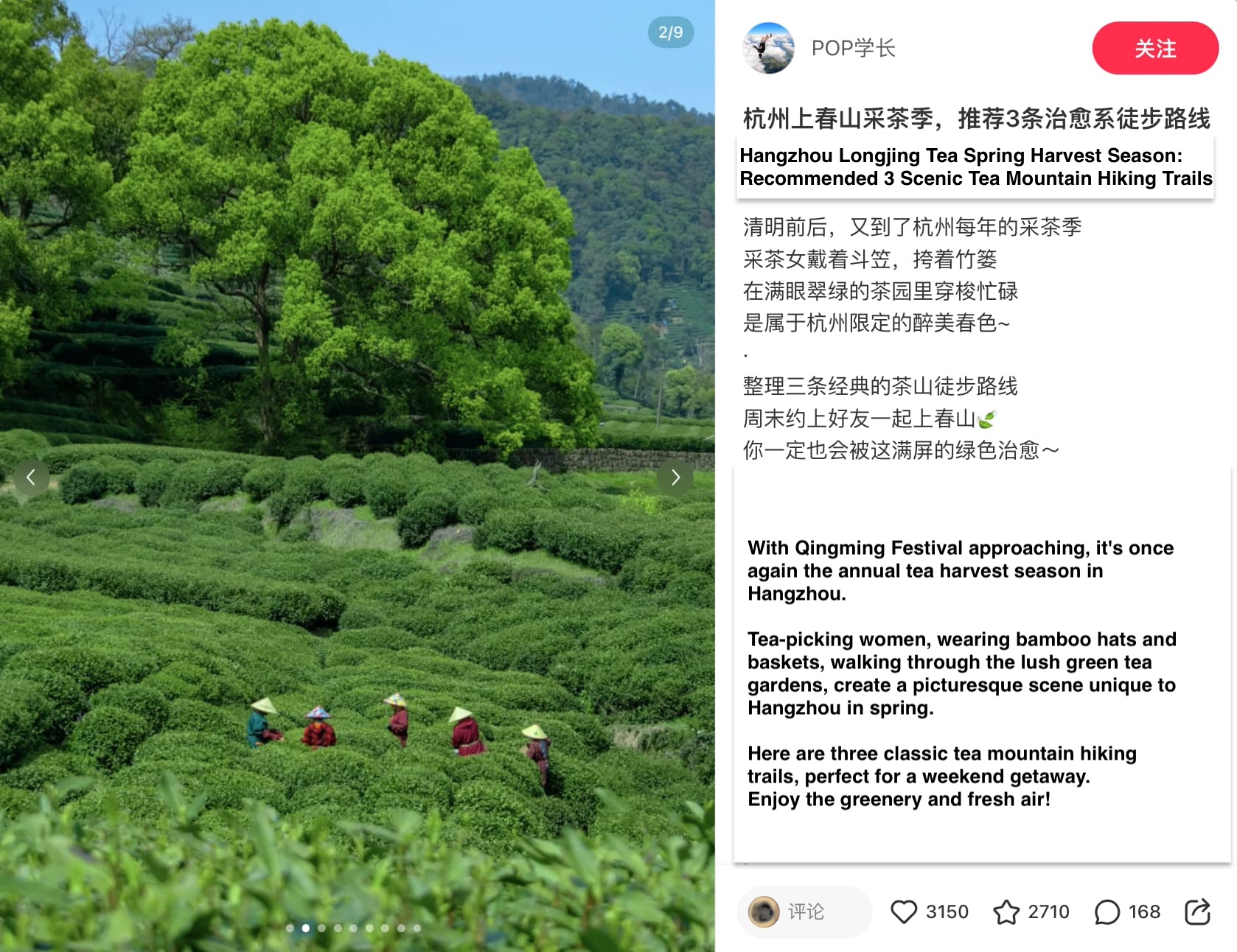
Mother’s Day (母亲节): What Chinese people gift their mothers
Despite Mother’s Day being an imported festival from the West, it is celebrated in China as it aligns with the Chinese culture of showing respect and appreciation towards parents. Gift-giving is common, with practical gifts being favored. JD.com data from Mother’s Day 2024 shows that beauty and skincare products (28%) led sales, followed by household appliances (18%). At the same time, interest in high-end gifts is also rising, with sales of jade necklaces increasing by 259% year-on-year, while the consumption of pearl earrings and gold bracelets has doubled.
Moreover, more brands are exploring what it means to be a mother. Instead of focusing on mothers as people who do housework and childcare, brands are focusing on topics such as separating motherhood from identity. For example, in 2024, jewelry brand Lola Rose launched a campaign centered on the theme of “mother-child relationships,” featuring Chinese actress Tang Wei in a discussion about the role of motherhood and the dynamics between mothers and children. The campaign encouraged mothers to pay more attention to themselves.
520 Valentine’s Day (网络情人节/520): Celebrated by couples and even singles
The numbers “5-2-0” in Mandarin sound similar to “I love you”, making May 20th another Valentine’s Day among younger generations. Created by millions of Chinese internet users, 520 Day is celebrated by singles, couples, and married individuals alike. As of May 20th, 2024, the Xiaohongshu hashtag #520gifts (520礼物) garnered over 1.8 billion views, while the search index for “520” on Douyin increased by 66.34% year-on-year.
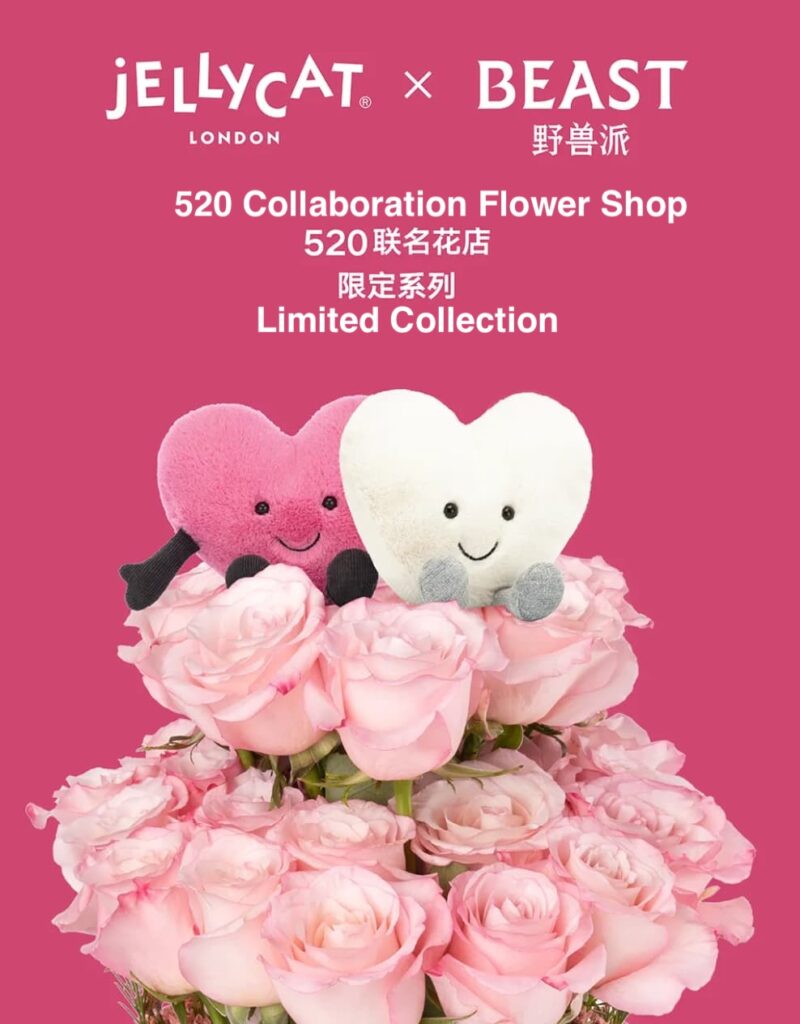
Dragon Boat Festival (端午节): combining traditional activities with modern experiences
The Dragon Boat Festival, rooted in honoring the ancient poet Qu Yuan, is traditionally celebrated with dragon boat races, eating zongzi (粽子, sticky rice dumplings), and hanging mugwort and calamus to ward off evil spirits. Over the years, it has transformed into a vibrant mix of cultural heritage and modern leisure activities.
In 2024, the Dragon Boat Festival holiday recorded 110 million domestic trips, reflecting a 6.3% year-on-year increase. Total tourism revenue reached RMB 40 billion, marking an 8.1% rise from the previous year. Dragon boat races, a key highlight of the festival, continue to draw large crowds. Data from Ctrip indicates that during the 2024 Dragon Boat Festival, tourism bookings in Yueyang, Hunan, the host city of the Miluo River Dragon Boat Super League, saw a 52% year-on-year increase.
As lifestyles evolve, younger generations are increasingly seeking unique holiday experiences, such as “camping during Dragon Boat Festival” (端午露营), which has become a popular choice in 2024, combining outdoor leisure with traditional customs.
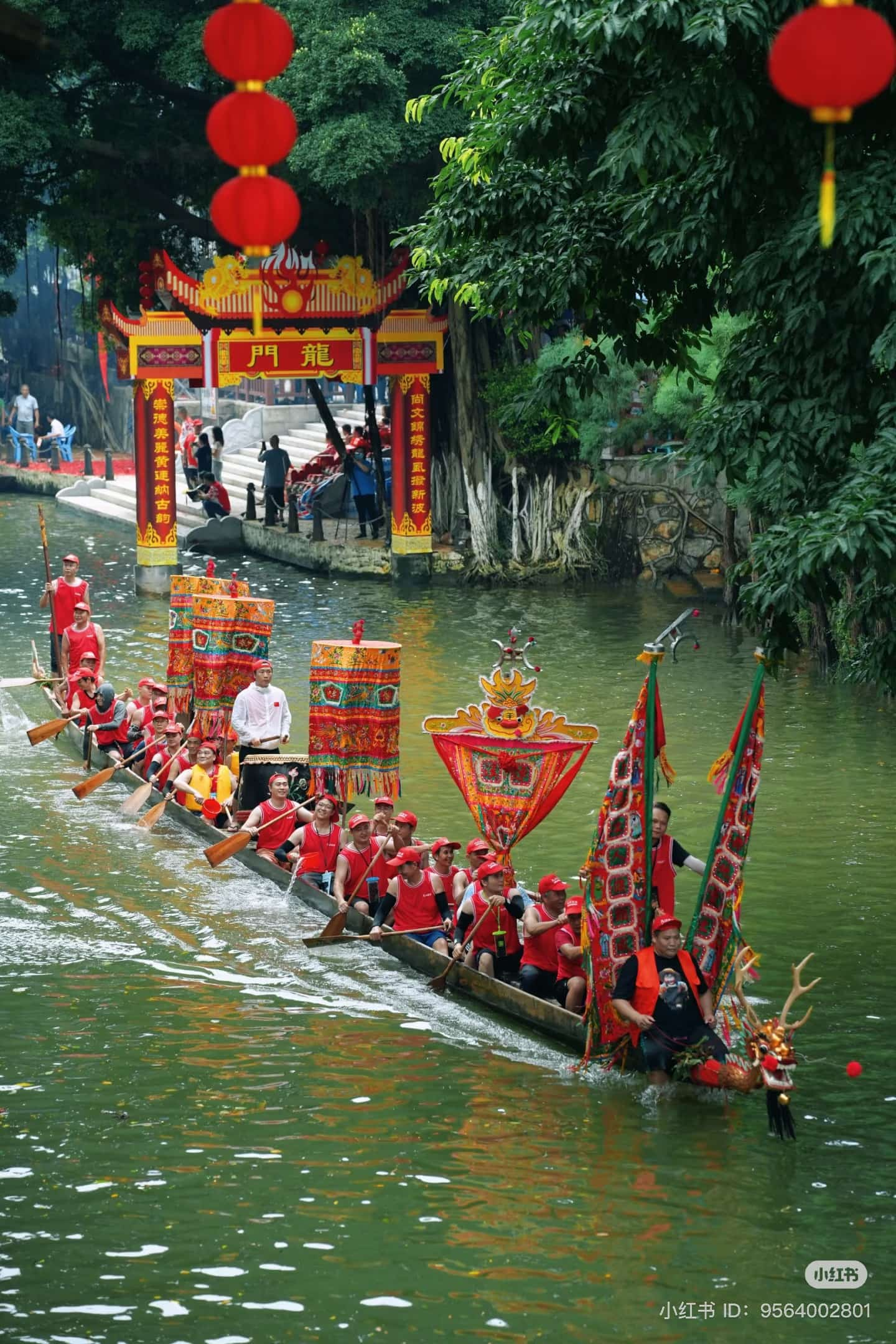
Children’s Day (儿童节) in China: Even adults celebrate it
Despite the continuous decline in China’s birth rate in recent years, the childcare market in China remains robust. Even though parents are having fewer children, they are willing to buy premium and luxury products and spend time and effort on them. On Children’s Day, besides gifting them presents, parents often take their children to the movies or enjoy family outings together.
Children’s Day is not limited to children under 18 years old. Facing increasing real-life pressures, young adults celebrate it to escape reality and relieve stress. JD.com data in 2023 shows that more than 70% of young adults want to celebrate Children’s Day, with nearly 60% using it as an excuse to buy things they enjoy. Moreover, young adults are consuming children’s products and entertainment. According to a report from the China Tourism Research Institute in 2021, nearly half of Disney visitors aged 20 to 30 had no children.
618 Shopping Festival (618购物节): A shopping festival created by JD.com
The 618 festival, which originated from JD.com’s anniversary on June 18th, has grown into one of China’s biggest e-commerce events. Today, major platforms like Tmall, JD.com, Taobao, and Xiaohongshu participate in the festival. In 2024, online retail sales during the event experienced a 10.5% year-on-year increase.
Data from Economic View in 2024 shows Chinese consumers’ enthusiasm for Guochao (国潮) , which is a reflection of consumer’s profound interest in China’s culture, traditions, and domestic brands, remains strong. “New Chinese-style” (新中式) aesthetics, for example, have driven significant growth in sales of items like children’s Hanfu, Mamian skirts (马面裙), Guochao jewelry (国潮首饰), all exceeding a 50% year-on-year growth. Moreover, sustainability is gaining greater importance among consumers. Sales of eco-friendly paints, flooring, and soundproofing materials rose by over 30%, while demand for energy-efficient appliances increased by more than 40%.
Qixi Festival (七夕节/乞巧节): China’s version of Valentine’s Day
Qixi Festival, also known as the Chinese Valentine’s Day, originated from the worship of the Weaver Girl (织女) and was originally a women’s festival, where women traditionally prayed for skills in weaving and domestic arts. Over time, it evolved into a celebration of the love between the Cowherd and the Weaver Girl (牛郎织女).
Today, Chinese businesses promote it as an important day for expressing romantic love, closely linking it to couple-related consumption and activities. According to iiMedia Research in 2024, products designed for couples, such as matching rings and watches, emerged as the top choice, accounting for 27.27% of purchases. Following closely were WeChat red envelopes and cash (24.38%), fashion items like shoes, clothing, and bags (21.90%), fragrances and aromatherapy products (20.04%), and chocolate gift boxes (19.83%).
In recent years, with a growing interest in traditional culture among young people, the festival’s original significance—praying for craftsmanship in weaving and domestic arts—has been rediscovered. Brands have expanded beyond the traditional romance theme to explore cultural heritage. For example, skincare brand Winona collaborated with Yunnan’s intangible cultural heritage weaving to launch a 2024 Qixi gift box.
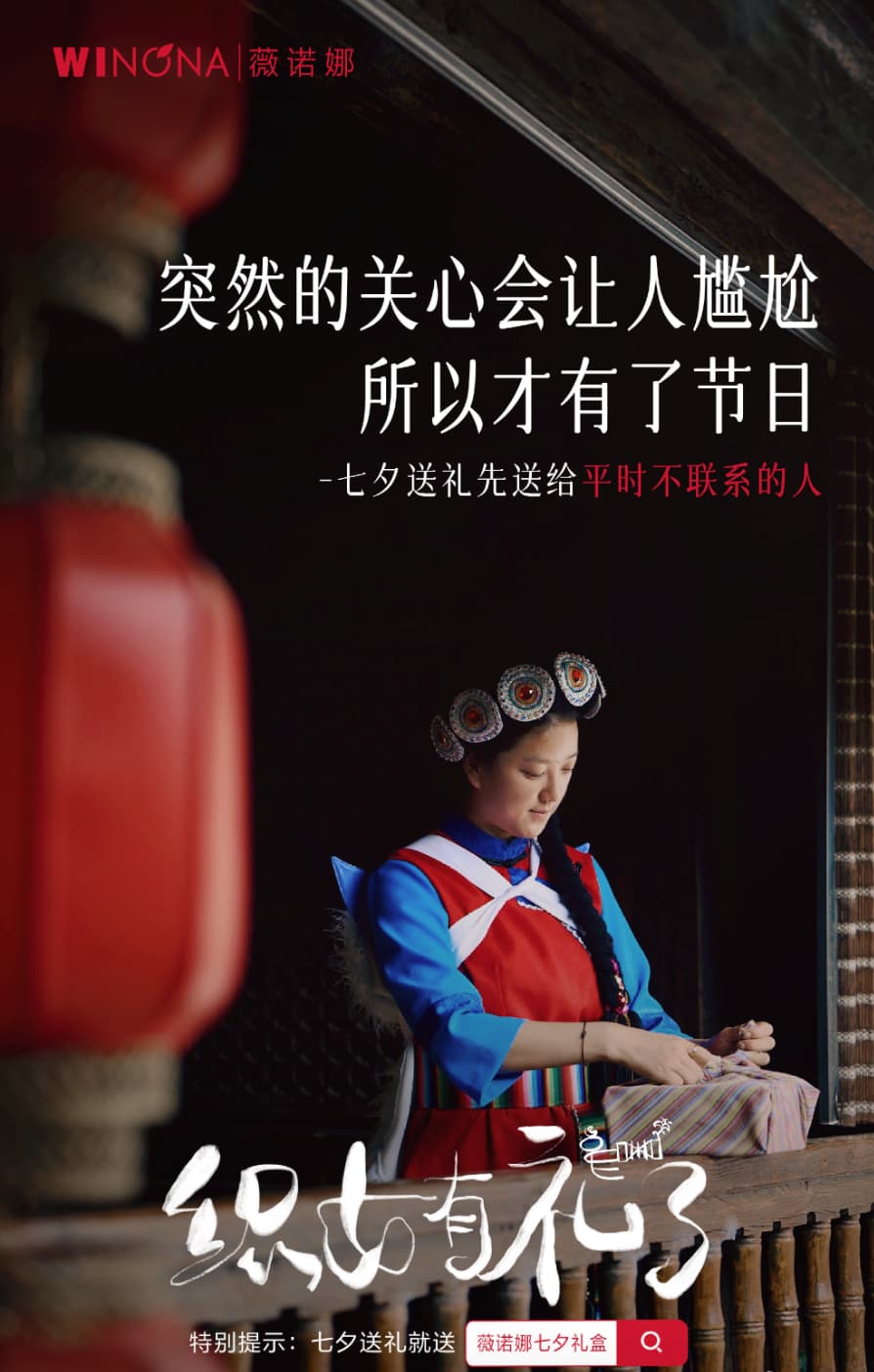
Mid-Autumn Festival (中秋节): Chinese consumers seek “food as medicine”
The Mid-Autumn Festival is marked by family reunions, mooncakes and the exchange of gifts like tea, crabs, nuts and alcohol boxes. Mooncakes, as traditional festive food, are a key part of celebrating the Mid-Autumn Festival. However, mooncakes have recently faced criticism due to their unhealthy ingredients, high calorie content, and the growing health awareness in Chinese society. According to 2024 JD.com data, when asked about their key considerations when purchasing mooncakes, “healthy and low-sugar” ranked first, accounting for 40% of respondents.
Meanwhile, New Chinese-style pastries (新中式糕点), are becoming increasingly popular among Chinese consumers as a healthier alternative to traditional sweets. These pastries incorporate ingredients that align with the traditional concept of “food as medicine”(食疗), emphasizing both nutritional value and health benefits. Their low-sugar, low-fat qualities appeal to health-conscious consumers, making them a preferred choice in today’s market. Popular varieties include salted egg yolk pastries (蛋黄酥), Ding Sheng cakes (定胜糕), walnut cookies (桃酥), and mung bean cakes (绿豆饼).
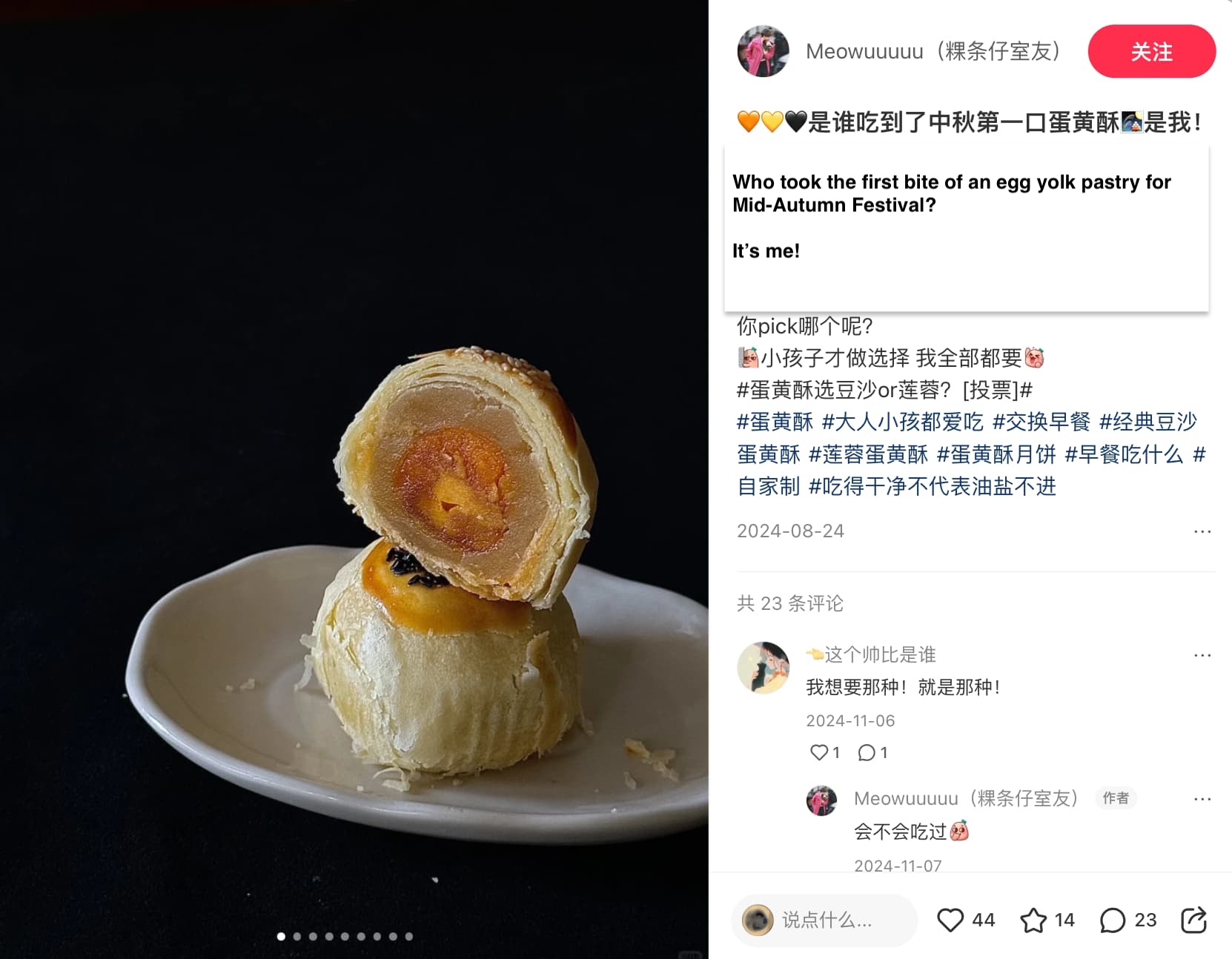
National Day of China (国庆节): Traveling to lesser-known places
The National Day commemorates the founding of the People’s Republic of China. The week that follows, known as “Golden Week” (黄金周), is one of the busiest travel periods in China. In 2024, domestic trips during the National Day holiday reached 765 million, marking a 5.9% year-on-year increase. Total domestic tourism spending hit RMB 700.8 billion, up by 6.3%. While major cities like Beijing, Shanghai, Chengdu, and Guangzhou continue to attract tourists, more Chinese travelers are embracing reverse tourism (反向旅游), choosing lesser-known small towns to escape the crowds and enjoy a more immersive experience. Data from Xiaohongshu reveals that during the 2024 National Day holiday, interest in destinations such as Tianshui, Yixing, Huangshan, Yuncheng, and Liuyang surged by over 100% compared to the previous year.
Halloween (万圣节): A way to release stress among young people
To cope with the pressures of life, young people in China engage in self-expression by “going crazy” (发疯/玩抽象). Halloween, with its unique atmosphere and activities, has transcended cultural boundaries and evolved into a widespread celebration for emotional release. Halloween in China, much like in other countries, is primarily an entertainment-focused occasion, with people enjoying dressing up, taking photos, and participating in exclusive theme park events.
However, in 2024, Halloween celebrations in China faced increased scrutiny and restrictions. Authorities implemented tighter regulations on public gatherings and themed events, citing concerns over public safety and cultural sensitivities. This crackdown led to the cancellation of several large-scale Halloween parties and stricter oversight of themed activities in major cities. For example, In Shanghai, authorities imposed strict controls on street costume events. Police patrolled central streets, such as Julu Road (巨鹿路), one of the city’s popular Halloween gathering spots, setting up barriers to prevent gatherings and asking costumed participants to remove their makeup.
Double 11 (双十一), the largest shopping festival in China, highlights value-driven consumption
Double 11 the world’s largest online shopping festival, traditionally falls on November 11th but has expanded into a multi-week event. It started as an “anti-Valentine’s Day” for singles, symbolized by the number 1 (11/11). This shopping event consistently breaks sales records and is comparable to Black Friday in the U.S.
However, in recent years, the Double 11 festival has seen a decline in enthusiasm. In 2024, despite experiencing a “record” GMV, returns and refunds were particularly high. With higher promotional thresholds and an extended sales period, brands experienced a significant increase in product returns and refunds compared to previous years. There were rumors, for example, that Ralph Lauren, suffered a 95% return rate in 2024 Double 11.
This highlights that consumers are demanding higher quality and purchasing experience compared to the past. They are shifting away from purchasing many products at discounted prices to longer, valuable products in smaller amounts.
Christmas (圣诞节) is celebrated by young urban consumers
Although Christmas is not a public holiday in China, it has become a popular event among Gen Z and Millennials. Many celebrate by shopping, exchanging gifts with friends and romantic partners, and enjoying festive meals. For them, Christmas is viewed more as a trendy and social occasion.
Despite a decline in Christmas-related discussions on Chinese social media platforms in 2024 compared to the previous year, consumer enthusiasm and celebrations remained strong, particularly in first-tier cities. Shanghai, for example, was brimming with festive cheer, with beautifully decorated Christmas trees, pop-up events, and special holiday feasts.
Christmas celebrations have also evolved beyond the traditional focus on dining, incorporating diverse cultural experiences such as concerts, art exhibitions, and lantern-themed night tours.
Meanwhile, social media trends indicate that desserts (including cakes and chocolates), clothing, toys, and cosmetics remain the most sought-after Christmas-related products, underscoring consumers’ continued desire for festive experiences and a sense of occasion.




